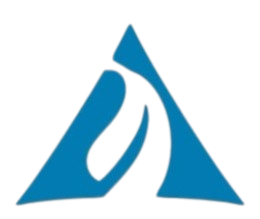Torch announces $200M for funding consumer-facing startups
(March 28, 2023) – Consumer-focused startups have been under pressure since the economic downturn began last year. Online marketing costs have risen to a point that many businesses no longer view that form of advertisement as the main channel for bringing customers in the door.
But that's not stopping Torch Capital, an early-stage venture fund, from being excited about tech-enabled consumer brands and platforms. The NYC-based firm, which was founded in 2018 by entrepreneur Jonathan Keidan, is announcing the closing of over $200 million across two funds: a $116 million second flagship fund and an $89 million first opportunity fund.
Torch's latest infusion of capital is a meaningful step up from the firm's first $60 million fund.
Keidan began his career as a music talent manager working with artists including John Legend and The Dave Matthews Band. He later helped former General Electric CEO Jack Welch launch the Jack Welch Management Institute, an online education company. He was also an angel investor in Compass, Sweetgreen and Zocdoc.
Keidan acknowledged that investing in traditional ecommerce brands has been challenging in recent years. "Sometimes these companies work in the beginning, and you get to $10 million in revenue,” he said. “Then you get to $30 million, and all of a sudden, you're competing with different players and your costs go way up.”
But Torch looks at consumer businesses through a wide lens.
The types of companies Torch is most interested in backing now cater to so-called solopreneurs. These are creators, independent contractors, freelancers and others starting small businesses. “Instead of thinking of them as enterprises, we think of them as consumers who need business tools,” Keidan said.
Torch's investments in the solopreneur category include Rho and Lili, banking platforms that cater to small and medium-sized businesses and gig economy workers, respectively.
Keidan said that the second flagship fund, which was mostly closed last year, has already backed 11 companies. It will eventually back 25 to 30 startups in total, writing checks from $1 million to $3 million for the seed stage, where Torch spends most of its time, and $3 million to $5 million for Series A rounds.
Notable investments out of the second fund include Embed, a clearing and custody platform for brokerages that was already sold to an undisclosed buyer, and Little Otter, a mental health provider for children and their families.
Torch slowed its investment pace last year, but due to lower valuations and lower competition for tech talent, the firm is again identifying strong opportunities.
“We're seeing some phenomenal founders and very exciting ideas in this environment,” Keidan said. “Things that make more sense now than [they have] in the last two years.”
But that's not stopping Torch Capital, an early-stage venture fund, from being excited about tech-enabled consumer brands and platforms. The NYC-based firm, which was founded in 2018 by entrepreneur Jonathan Keidan, is announcing the closing of over $200 million across two funds: a $116 million second flagship fund and an $89 million first opportunity fund.
Torch's latest infusion of capital is a meaningful step up from the firm's first $60 million fund.
Keidan began his career as a music talent manager working with artists including John Legend and The Dave Matthews Band. He later helped former General Electric CEO Jack Welch launch the Jack Welch Management Institute, an online education company. He was also an angel investor in Compass, Sweetgreen and Zocdoc.
Keidan acknowledged that investing in traditional ecommerce brands has been challenging in recent years. "Sometimes these companies work in the beginning, and you get to $10 million in revenue,” he said. “Then you get to $30 million, and all of a sudden, you're competing with different players and your costs go way up.”
But Torch looks at consumer businesses through a wide lens.
The types of companies Torch is most interested in backing now cater to so-called solopreneurs. These are creators, independent contractors, freelancers and others starting small businesses. “Instead of thinking of them as enterprises, we think of them as consumers who need business tools,” Keidan said.
Torch's investments in the solopreneur category include Rho and Lili, banking platforms that cater to small and medium-sized businesses and gig economy workers, respectively.
Keidan said that the second flagship fund, which was mostly closed last year, has already backed 11 companies. It will eventually back 25 to 30 startups in total, writing checks from $1 million to $3 million for the seed stage, where Torch spends most of its time, and $3 million to $5 million for Series A rounds.
Notable investments out of the second fund include Embed, a clearing and custody platform for brokerages that was already sold to an undisclosed buyer, and Little Otter, a mental health provider for children and their families.
Torch slowed its investment pace last year, but due to lower valuations and lower competition for tech talent, the firm is again identifying strong opportunities.
“We're seeing some phenomenal founders and very exciting ideas in this environment,” Keidan said. “Things that make more sense now than [they have] in the last two years.”


